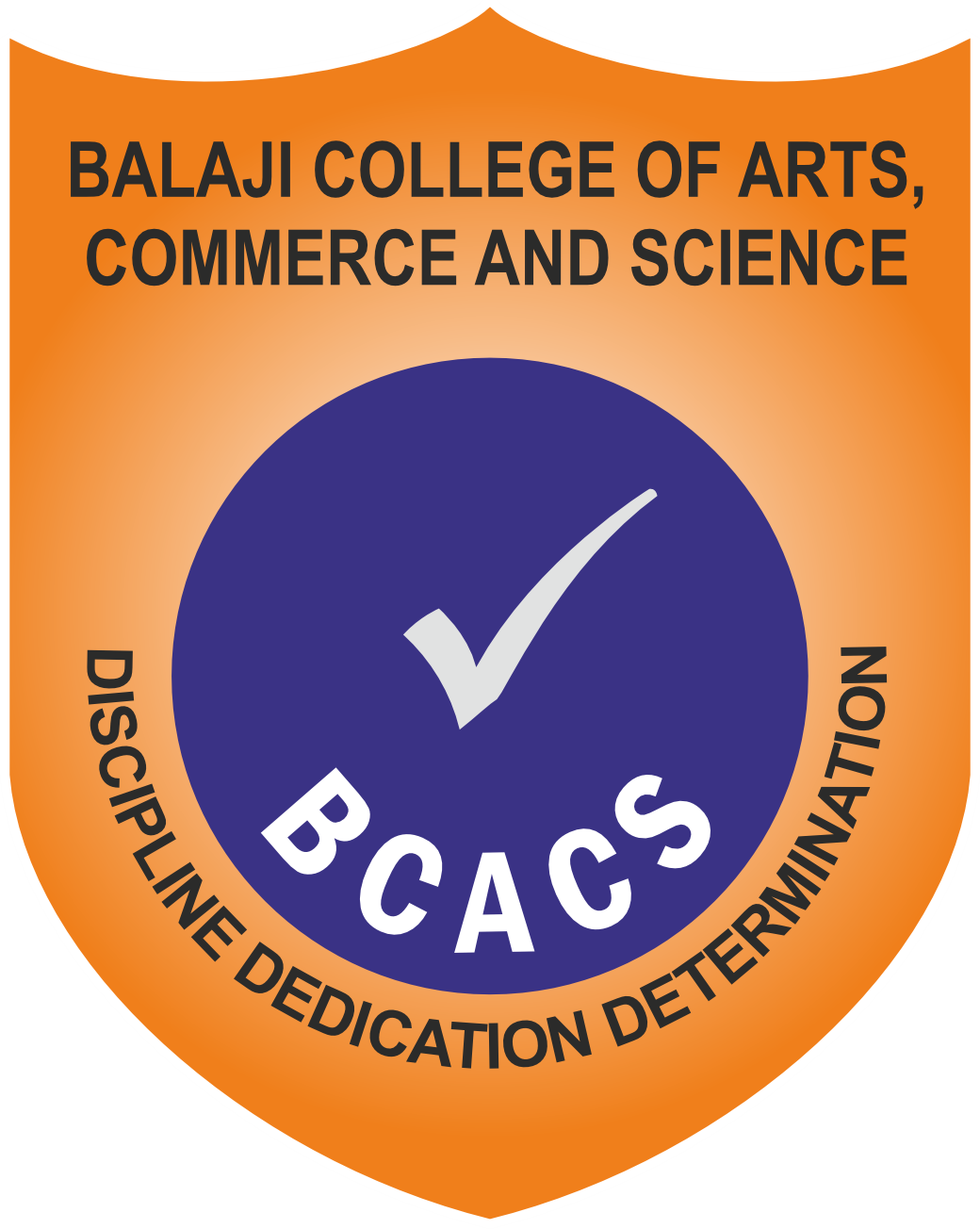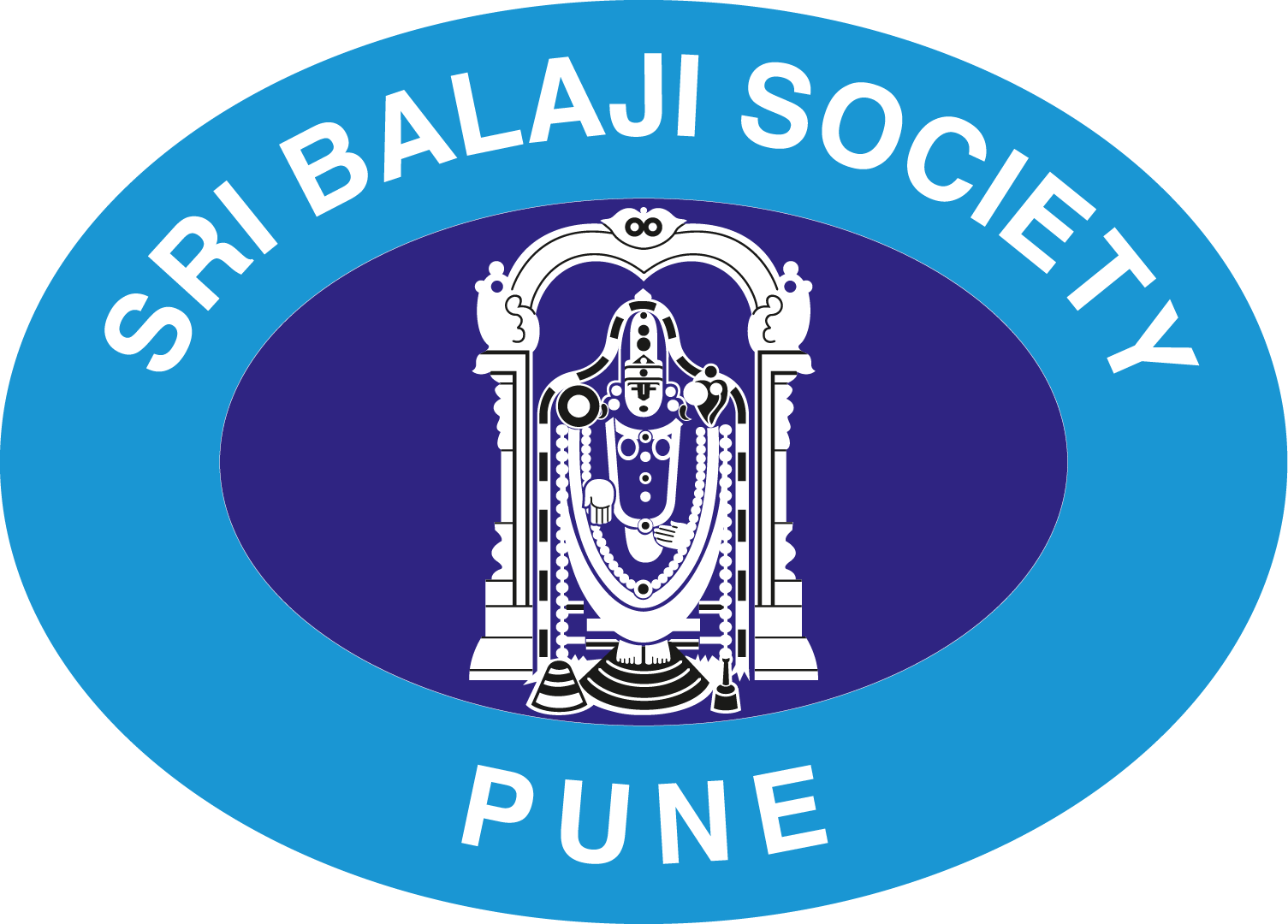
Research
Research Cell
| Sr. No | Name | Designation |
|---|---|---|
| 1 | Dr. Jayasree Nambiar | Chair Person |
| 2 | Dr. Nilesh Patil | Member |
| 3 | Dr. Revati Deshkar | Member |
Balaji College of Arts, Commerce & Science Academic Integrity Policy
Balaji College of Arts, Commerce & Science (BCACS), Pune is known for imparting quality education with focus on academic integrity; based on the pillars of Discipline, Determination, and Dedication.
Academic Integrity encompasses honesty and responsibility and awareness relating to ethical standards for the conduct of regular class/course assignments, project reports, class/term/practice test as well as university examinations. The Institute believes that in all academic work, the ideas and contributions of others must be appropriately acknowledged.
Academic Integrity encompasses honesty and responsibility and awareness relating to ethical standards for the conduct of regular class/course assignments, project reports, class/term/practice test as well as university examinations. The Institute believes that in all academic work, the ideas and contributions of others must be appropriately acknowledged.
1. Scope and Purpose
This Policy on academic integrity, applies to all students and faculty members associated with the Institute. They are required to adhere to the said policy.
Academic integrity requires that a student properly acknowledges and cites use of the ideas, results, material or words of other contributors to a given piece of work.
Academic integrity requires that a student properly acknowledges and cites use of the ideas, results, material or words of other contributors to a given piece of work.
2. Violations of this policy include, but are not limited to:
(i) Plagiarism is one of the major threats to academic integrity. According to the Merriam-Webster online dictionary, to "plagiarize" means:
- to steal and pass off (the ideas or words of another) as one's own
- to use (another's production) without crediting the source
- to commit literary theft
- to present as new and original an idea or product derived from an existing source
In other words, plagiarism is an act of fraud. It involves both stealing someone else's work and lying about it afterward.Few examples of plagiarism include: - Reproducing, in whole or part, text/sentences from a report, book, thesis, publication or the internet.
- Taking material from class-notes or incorporating material from the internet graphs, drawings, photographs, diagrams, tables, spreadsheets, computer programs, or other non-textual material from other sources into one’s class reports, presentations, manuscripts, research papers or thesis without proper attribution.
- Submitting a purchased or downloaded term paper or other materials to satisfy a course requirement.
- Paraphrasing or changing an author’s words or style without citation.
(ii) Cheating also constitutes one of the common threats to academic integrity. Cheating includes, but is not limited to:
- Copying during examinations, and copying of homework assignments, term papers, theses or manuscripts.
- Allowing or facilitating copying, or writing a report or taking examination for someone else.
- Fabricating (making up) or falsifying (manipulating) data and reporting them in assignment/project report.
- Creating sources, or citations that do not exist
- Altering previously evaluated assignment/project report and re- submitting the same for re-evaluation
- Signing on another student’s behalf on an assignment, report, research paper or attendance sheet
3. Guidelines for academic conduct are provided below to guard against negligence as well as deliberate dishonesty:
- Write clearly in your own words. It is necessary to resist the temptation to “copy and paste” from the Internet or other sources for class assignments, manuscripts and thesis.
- Give due credit to previous reports, methods, computer programs, etc. with appropriate citations.
4. Individual and Collective Responsibility: The responsibility varies with the role one plays.
- Student roles: Before submitting an assignment/course work/project report to the department, the student is responsible for checking the contents for plagiarism using software that is available on the web. If a student observes or becomes aware of any violations of the academic integrity policy he/she is strongly encouraged to report the misconduct in a timely manner.
- Faculty roles: Faculty members are also responsible for ensuring personal compliance with the above broad issues relating to academic integrity while teaching, conducting class test/examinations. Faculty members are expected to inform students of the Institute’s academic integrity policy within their specific courses, to ensure minimal academic dishonesty, and to respond appropriately and timely to violations of academic integrity.
- Institutional roles: A breach of academic integrity is a serious offence with long lasting consequences for both the individual and the institute, and this can lead to various actions. In the case of a student the first violation of academic breach will lead to a warning and/or revoking allotted marks/grade. It is recommended that faculty bring any academic violations to the notice of the department head/Principal. Upon receipt of reports of misconduct, the Principal may appoint a committee to investigate the matter and suggest appropriate measures on a case by case basis.
| Sr. No | Name | Total Number of Research | Published Work |
|---|---|---|---|
| 1 | Dr. Arun Wankhade | 1 | VIEW MORE |
| 2 | Dr. O.M. Ashtankar | 6 | VIEW MORE |
| 3 | Dr. Prachi Jain | 3 | VIEW MORE |
| 4 | Ms. Gayatri Nayak | 2 | VIEW MORE |
| 5 | Dr. Jayasree Nambiar | 2 | VIEW MORE |
| 6 | Dr. Revati Deshkar | 2 | VIEW MORE |
| 7 | Prof. Apeksha Agarwal | 2 | VIEW MORE |
| 8 | Ms. Sonali Bhor | 1 | VIEW MORE |
| 9 | Ms. Kirti Bothe | 2 | VIEW MORE |
| 10 | Dr. Saroj Parihar | 1 | VIEW MORE |
| 11 | Dr. Nilesh Patil | 2 | VIEW MORE |
| 12 | Dr. Anjum Khan | 2 | VIEW MORE |
| 13 | Ms. Bhakti Joshi | 1 | VIEW MORE |
| 14 | Ms. Sai Vijetha Perugu | 1 | VIEW MORE |
| 15 | Ms. Neha Shrivastava | 1 | VIEW MORE |

